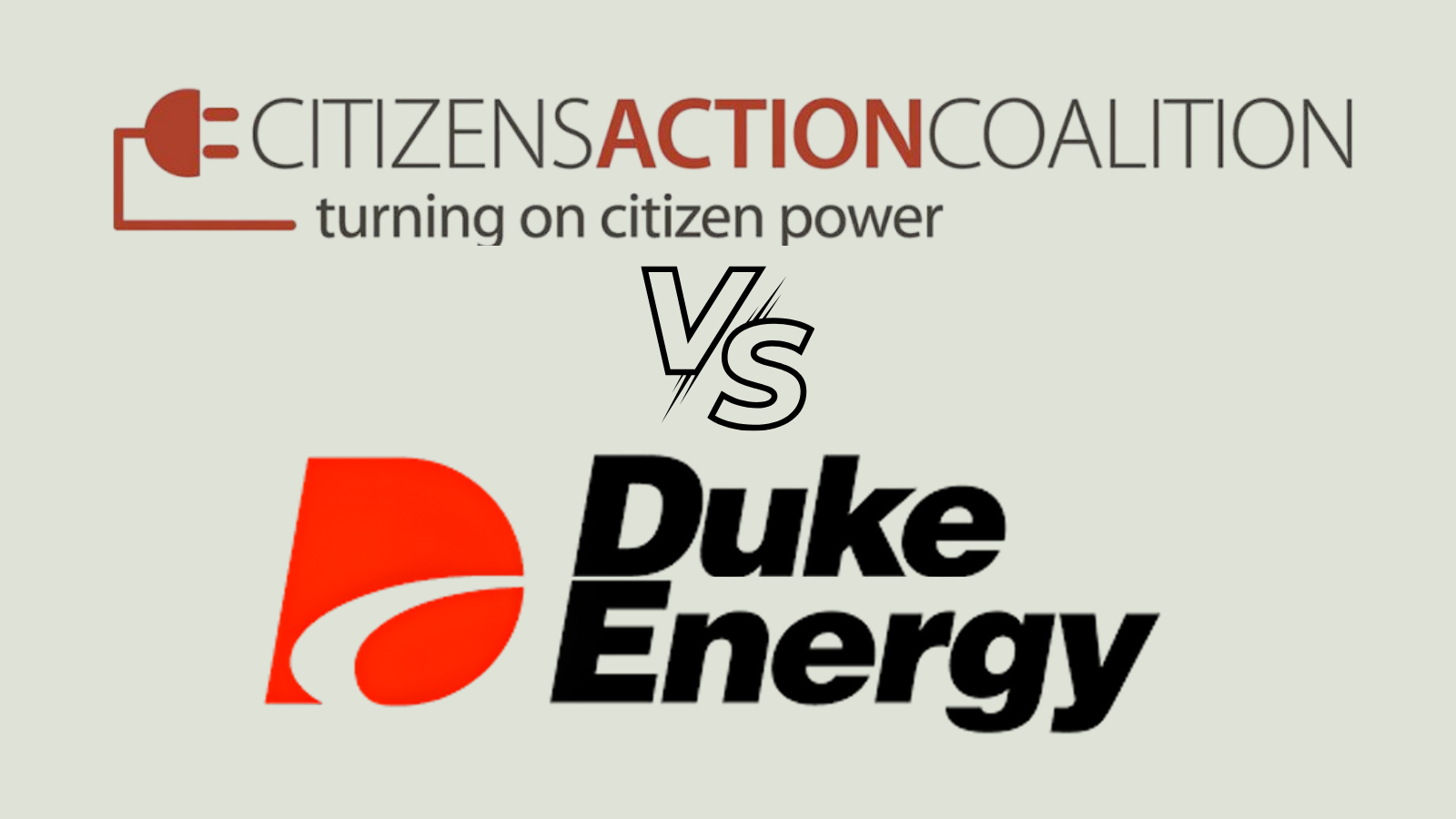Hoosiers are up in arms against Indiana energy corporations, which recently filed a joint petition with the Indiana Utility Regulatory Commission (IURC) that would effectively allow them to make consumers pay for corporate losses incurred during the pandemic. In what the Citizens Action Coalition is calling “unprecedented utility greed,” these corporations want to charge us for energy we didn’t use.
Sign and share Citizens Action Coalition petition!
Trying to dampen outrage by timing the move at the low end of the news cycle, 10 utility corporations filed the petition just before the close of the business week on Friday, May 8. It didn’t work.
Instead, over the last two weeks the national media spotlight has focused on Indiana’s monopoly utility companies, and state agencies and representatives have been subjected to an unprecedented wave of petitions, e-mails, and phone calls.
Bryce Gustafson, an organizer for the Citizens Action Coalition, headquartered in downtown Indianapolis, told ANSWER Indiana that it was not only the brazen request, but the history of corporate greed that generated the widespread shock and anger
“Over the last few years,” he said, “they have gotten almost everything that they’ve asked for here in Indiana. But, at a time when Hoosiers are struggling with record unemployment, housing insecurities, and to simply put food on their tables, for the utilities to ask those same folks to pay for energy that they didn’t use is absolutely outrageous.”
As of the end of Monday, May 18, there was no word yet from the IURC. During the state’s press conference that day, Gov. Holcomb declined to stand up for the people, and put the ball in the IURC’s court.
When they make money, they keep it; when they lose money, we pay for it?
Of the investor-owned companies filing the petition, the largest are Duke Energy Indiana, Indianapolis Power & Light Company, Indiana Michigan Power Company, Northern Indiana Public Service Company, Indiana Gas Company, and Vectren, which collectively serve around over 3 million people.
In their petition, the corporations bemoan “increased expenses and reduced revenues” from the pandemic, which are “outside the[ir] control.” Some of the factors cited are decreased energy consumption and the moratorium on shutoffs, which is currently slated to end on June 4.
There is absolutely no regard for working-class and poor people who experienced the same pandemic. For the people, the consequences are devastating, with at least 1,621 deaths so far.
In 2018 alone, the Duke Energy Corporation made almost $3 billion in profits on over $24 billion in revenue. When they make money, they keep all of it for themselves and their shareholders. But when they lose money, they want the people to pay for it!
“The utilities have extraordinary power and influence at our statehouse. If the regulators tell them no, they march across the street to craft, lobby, and pass laws that protect their bottom line at the expense of Hoosier ratepayers, especially the most vulnerable,” said Gustafson.
Utility corporations are monopolies. They don’t operate in a free market; there isn’t any competition. They make their profits by selling something that everyone needs, and we have no choice in the matter. They have all the power
The people can have power over our energy, if we fight for it
Unlike the corporations, working and poor people don’t own lobbyists, lawyers, and politicians that can do our bidding. That makes asserting our power difficult, but not impossible. If we organize collectively and struggle, we can change the balance of forces.
Right now, Citizens Action Coalition is asking everyone to contact Gov. Holcomb and the Indiana Utility Regulatory Commission to demand that they reject the petition and any request for rate increases, extend the moratorium on shutoffs, and promptly create a Utility Affordability Task Force to defend the people’s interests.
ANSWER Indiana supports Citizens Action Coalition’s campaigns. We encourage all of our members and supporters to sign and share their petition, and to contact state and local officials and demand that they fight on behalf of the people.
Featured photo: Original design. Credit: ANSWER Indiana.

